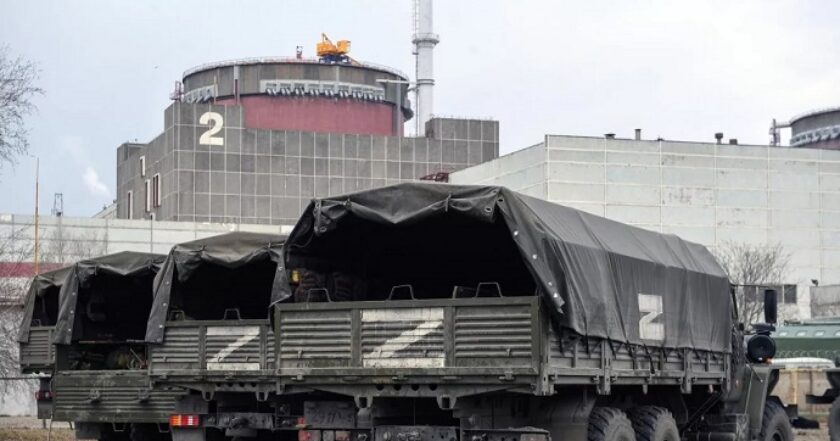Russian authorities plan to forcibly issue passports to Zaporizhzhia nuclear plant workers – intelligence

Photo: DEFENSE EXPRESS
Kremlin-appointed authorities have been ordered to issue Russian passports to several hundred employees of the Zaporizhzhia nuclear power plant by the end of the year, the intelligence report says.
Russia continues to increase pressure on the ZNPP workers, forcing them to obtain Russian passports and sign contracts with the Rosatom nuclear energy grid.
Several hundred researchers are expected to refuse Ukrainian citizenship and sign contracts by December 31.
Intelligence notes that the authorities selectively deprive people of access to workplaces by canceling passes, and creating a telegram bot for anonymous employee denunciations.
The report states that dissatisfaction among Russian power engineers is growing due to unfulfilled promises regarding the duration of business trips to the occupied nuclear power plant. Instead of two months, they have to work for six or longer, as Russia lacks qualified specialists to replace them.
Russian forces seized the largest nuclear plant in Eastern Europe at the beginning of the full-scale war on March 4, 2022. They are disrupting the plant's operation and using the storage facilities to store equipment and deploy manpower.
Ukrainian officials have repeatedly reported the risks of a terrorist attack at the plant. Energy Minister Herman Galushchenko said that Russia could create conditions that would cause a nuclear incident after the plant's liberation by Ukrainian forces.
The IAEA confirmed the presence of mines at the nuclear facility, which the occupiers previously installed.
The organization also approved a resolution on the immediate return of the Zaporizhzhia Nuclear Power Plant to full Ukraine's control.
Since its seizure by the Russians, the plant has repeatedly lost its external power source, with seven complete blackouts and one partial already occurring at the plant.




















































